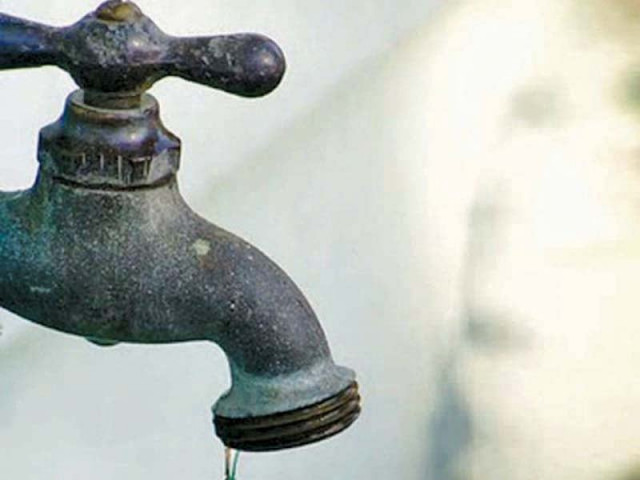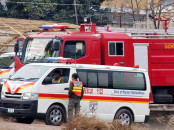Know your rights: Drinking water
One of the reasons behind water shortage is electricity load shedding

Access to potable water is a basic right implied in the Constitution.
Constitutional right
The Constitution of Pakistan secures several basic fundamental rights of citizens. The Article 9 relating says, “No person shall be deprived of life or liberty, save in accordance with the law.”
Legal experts say the article guarantees the right to life which includes provision of basic amenities such as water, food, healthcare and education. This suggests that every Pakistani has the right to get uninterrupted access to basic amenities, including water.
Municipal corporations
In Lahore, the city government and Water and Sanitation Agency (Wasa) are responsible for providing water to around 11 million citizens. Wasa caters to nearly six million people. The remaining are either living in private localities or in the areas under the control of the city government.
In rural areas of Lahore, the Public Health Engineering Department had the responsibility of installing infrastructure for water supply. The task was later given to town municipal administrations (TMAs).
New societies in the city prefer to install their own water pumping stations, said Lahore Development Authority Chief Metropolitan Planner Wahid Butt.
Although there are 1000 tube wells in the city, many areas face water shortages.
One of the reasons behind this is electricity load shedding.
New connections
Those applying for a water connection can download application forms from the official website of Wasa or get them from the agency’s city office.
A prospective consumer is required to fill in the form and submit it along with the copy of the national identity card.
The city government has established a standard operating procedure (SOP) of allowing water connections to only those users who produce certificates regarding completion of their houses.
A water connection shall be installed within 15 days of submitting an application. For areas not cover by Wasa, an unmetered water supply is maintained by TMAs.
Housing societies willing to install a tube well require a no-objection certificate from Wasa through Lahore Development Authority.
Consumer Rights
There is no mention of the rights of consumers in the Lahore Development Act 1975 or the Punjab Local Government Ordinance, 2001.
The act and the ordinance, however, fix the responsibility on Wasa and tehsil administrations to provide clean water. If a consumer does not get water, he/she can file an appeal with the ombudsman against Wasa… the district coordination officer becomes the appellant authority in case of TMA.
Responsibility of Wasa
The agency is only responsible to supply water on the ground floor of a house. It advises to build an under-ground tank for water storage. However, often consumers install a water pump on the main line to fill water tanks on the roofs. Wasa has no legal right to impose a fine on such consumers.
Water scarcity
People in several city areas often protest against Wasa for failing to provide water round-the-clock. Wasa authorities say they are unable to ensure interrupted water supply on account of power outages.
Of the 491 tube wells in the city, only 142 are backed by a power generator.
Wasa Managing Director Chaudhry Naseer says people should store water to avoid inconvenience.
Arsenic in water
Water pumped by Wasa tube wells to many areas of Lahore contains arsenic well over 10 parts per billion (ppb), according to the World Health Organisation (WHO). The safe arsenic level set by the Pakistan Standards and Quality Control Authority (PSQCA) is 50ppb.
Of the areas surveyed, water at 15 locations exceeds the PSQCA limit. Around 47 sites had arsenic concentration ranging between 40ppb and 50 ppb; as many as 70 areas have arsenic concentration ranging between 30ppb and 40 ppb. At 173 tube wells, the level of arsenic was above 10ppb. Forty seven of the tube wells had between 40ppb and 50ppb of arsenic.
In 1993, the WHO had set the standard for arsenic in drinking water at 10ppb. Naseer said arsenic level was high in more than 90 per cent of Lahore.
He said 98 pumps had been installed to remove arsenic. He said that this water however was only limited to tap installed at the tube wells.
Published in The Express Tribune, September 24th, 2014.



















COMMENTS
Comments are moderated and generally will be posted if they are on-topic and not abusive.
For more information, please see our Comments FAQ